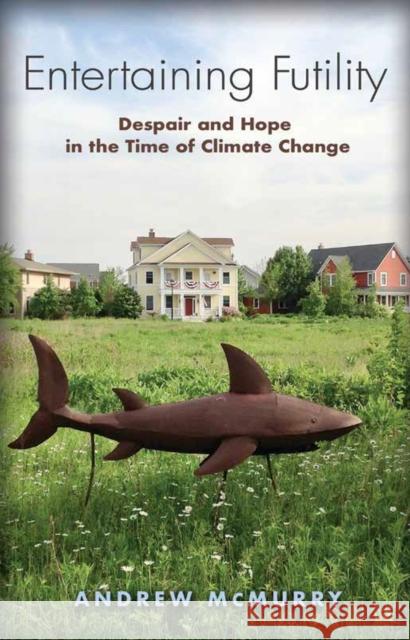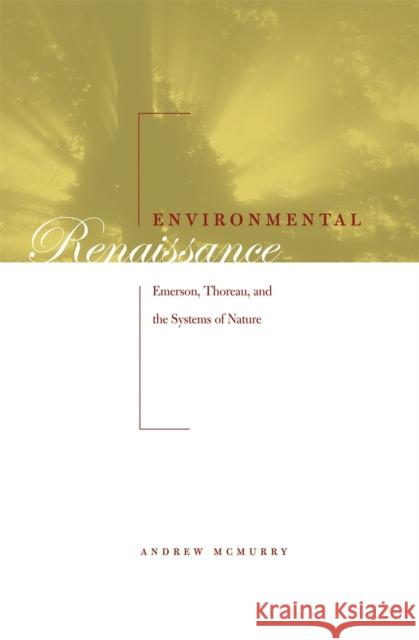Wyniki wyszukiwania:
wyszukanych pozycji: 2
 |
Entertaining Futility: Despair and Hope in the Time of Climate Change
ISBN: 9781623496852 / Angielski / Miękka / 2018 / 224 str. Termin realizacji zamówienia: ok. 30 dni roboczych. In playfully pessimistic and thought-provoking essays, author Andrew McMurry explores a vital but fundamentally perverse human practice: destroying our planet while imagining we are not. Entertaining Futility investigates the discourses of hope, progress, and optimism in the era of climate change, concepts that, McMurry argues, are polite names for blind faith, greed, and wishful thinking.
In playfully pessimistic and thought-provoking essays, author Andrew McMurry explores a vital but fundamentally perverse human practice: destroying ou...
|
cena:
102,81 |
 |
Environmental Renaissance: Emerson, Thoreau, and the Systems of Nature
ISBN: 9780820325309 / Angielski / Twarda / 2003 / 288 str. Termin realizacji zamówienia: ok. 16-18 dni roboczych. Through contemporary environmental philosophy and emerging paradigms in complex systems theory, Andrew McMurry presents a new reading of Emerson, Thoreau, and the green tradition in American thought. McMurry analyzes Emerson and Thoreau's foundational roles in the formation of the two main currents in American environmentalism: the managerial, or "shallow," and the radical, or "deep." The author draws, in particular, on Humberto Maturana and Francisco Varela's theory of autopoesis and the social systems theory of Niklas Luhmann. These theories, says McMurry, give us the conceptual tools... Through contemporary environmental philosophy and emerging paradigms in complex systems theory, Andrew McMurry presents a new reading of Emerson, T... |
cena:
247,38 |










